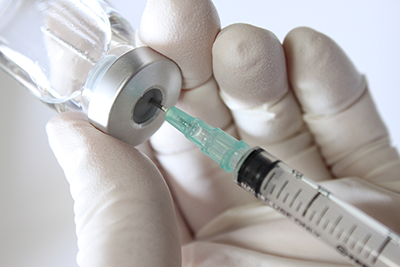Last month, the Food and Drug Administration (FDA)
approved an
addition to the label for the long-acting injectable (LAI) formulation of paliperidone palmitate sold under the brand name Invega Sustenna. The clinical trials section of the label now includes a description of the Paliperidone Palmitate Research In Demonstrating Effectiveness (PRIDE) study—a prospective, open-label, randomized, 15-month study comparing the LAI with oral antipsychotic medications in patients with schizophrenia who have a history of contact with the criminal justice system.
This new reference on the medication’s label might not seem particularly momentous, but it could represent the start of an important shift in how companies test their medications, and how physicians prescribe them. Based on the findings of the PRIDE trial, there is reason to believe that Invega Sustenna may improve outcomes such as a reduction in inpatient hospitalizations or arrests—the negative, real-world consequences that happen to many schizophrenia patients when their medication doesn’t work.
The
PRIDE study included 444 adults aged 18 to 65 who had been taken into custody at least twice in the previous two years, and at least once in the prior 90 days. About 60 percent of these adults had a concurrent substance use disorder, and 14 percent were homeless.
“Ineffectively treated psychiatric symptoms, such as psychosis or addiction, may put patients at risk for breaking the law, getting arrested, and being incarcerated,” John Krystal, M.D., chair of psychiatry at Yale University School of Medicine told Psychiatric News. “Yet many pharmacotherapy studies exclude formerly jailed patients. The PRIDE study is distinctive in its focus on patients diagnosed with schizophrenia and with a history of incarceration.”
Patients were randomly assigned to either Invega Sustenna (median dose 156 mg) or one of up to seven pre-specified, flexibly-dosed, commonly prescribed oral antipsychotic medications (aripiprazole, haloperidol, olanzapine, paliperidone, perphenazine, quetiapine, or risperidone). The investigators used oral drugs as the comparison since the goal of this study was to mimic the real-world management of at-risk schizophrenia patients.
The primary endpoint for the 15-month trial was time to treatment failure, defined as one of the following: arrest and/or incarceration, psychiatric hospitalization, discontinuation of antipsychotic treatment because of safety or tolerability, discontinuation or treatment supplementation with another antipsychotic because of inadequate efficacy, need for increase in level of psychiatric services to prevent an imminent psychiatric hospitalization, or suicide.
“Many schizophrenia trials use symptom severity to assess drug effectiveness, and that is a clearly important measure,” said Martha Sajatovic, M.D., a professor of psychiatry at Case Western Reserve University School of Medicine and lead investigator for the PRIDE study. “But for the people living with this disorder and trying to get back on track, it is their functional status that matters.”
Overall, 39.8 percent of the LAI paliperidone palmitate group and 53.7 percent of the oral antipsychotic group experienced a treatment failure event during the 15-month study, with arrest/incarceration being the most common reason for failure in both groups. The investigators found that the average time before any treatment failure was about six months longer in the LAI group compared with the oral antipsychotic group (416 days versus 226 days).
Krystal added, “Despite no significant differential impact on global clinical severity or time to re-hospitalization when compared to oral antipsychotics, paliperidone palmitate delayed the first arrest or re-incarceration during study participation. This suggests that paliperidone palmitate, relative to oral antipsychotics, may reduce the risk for displaying behaviors that get people arrested even when it does not produce differential effects on other symptoms of schizophrenia.”
The improvements seen were due in part to better adherence rates of the medication, which is an advantage of LAIs as the medication is administered at clinics. In this study, around 77 percent of the people taking oral medications regularly got their prescriptions from their clinics, but only 24 percent regularly filled them at pharmacies. In comparison, the adherence rate for the paliperidone palmitate group was 95.2 percent.
“We showed a long-acting antipsychotic provides real-world benefits to a high-risk population that normally gets excluded from clinical studies,” Sajatovic said. Importantly, she added, this is not some experimental drug in the clinical pipeline; this medication is available now.
Sajatovic added that she hopes the inclusion of these data on the paliperidone palmitate label will spur physicians to change their views on LAIs and not see them as a “last resort” medication after multiple oral antipsychotics have failed.
According to Michelle Kramer, M.D., M.P.H., the vice president of Neuroscience Medical Affairs at Janssen, the manufacturer of Invega Sustenna, this represents the first instance of an antipsychotic label including real-world outcomes.
“The approval [of this trial] by the FDA to is significant because it shows that shows real-world data can pass regulatory muster,” she told Psychiatric News. ■

